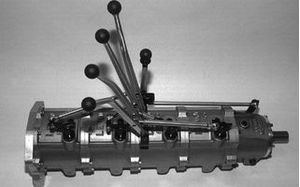CVT Issues Make Things Worse for Nissan on the American Market
Recently, Nissan has reduced its annual earnings expectations to its lowest level over the past 10 years caused by weakening of its positions on the US market, partially due to quality issues with its transmissions.The Japanese carmaker predicts operating earnings to drop 45 % versus a year earlier to $2.84 bln, because of costs related to extensions of car warranties in the US, its biggest market.

Meanwhile, Nissan's majority shareholder, Renault
SA of France (43.3%), not long ago presented a proposal for a new ownership
agreement, within the framework of which it is planned to merger companies into
a holding company. Nissan, in turn, turned the offer down.
Nissan also put the blame on all the publicity
surrounding the controversial case of former Ch
airman Ghosn for harming the
brand reputation and stimulating the drop in sales. Financial difficulties have
been haunting Nissan after Ghosn’s arrest last year on the charge of financial
fraud. Due to negative media coverage of the case, customers hold off on buying
Nissan cars, so in the past several months the sales fell. Ghosn, who denies
all wrongdoing, has been recently released on bail for $4.5 million. He faces
up to 15 years in prison if found guilty.

Carlos Ghosh
But Nissan's more pressing issue is related to CVT transmissions installed in its cars. The automaker allocated $590.5 million to prolong warranty commitments on CVTs applied in specific models for the US market. This measure will include more than three million cars sold within the period from 2012 to 2017, including the Sentra, Versa, and Altima. According to numerous complaints, with time the crucial powertrain element causes inconveniences to the car owners with excessive noise and vibrations. Therefore, Nissan came up with the idea to prolong their warranty obligations to 7 years from 5 in an effort to strengthen customer loyalty in a highly- competitive American market where the company has been experiencing hard times over the recent years.
The most negative impact, however, to Nissan’s balance between revenue and expenditure flows has come from the improper sales policy in the US. For a long time, the company has been providing unreasonable discounts to ensure competitive gains in selling its new models and to expand its share on the US market.

Hiroto Saikawa
Hiroto Saikawa, who took the CEO position two
years ago, has promised to take meaningful steps on improving the financial
situation, but it has been not very efficient so far, as Nissan keeps returning
to the policy of increased discounts to support sales.
Disappearing Gap Between Renault and Nissan
profits
Analysts assume that Nissan’s financial difficulties may negatively affect its position in relations with Renault, which has been aiming for a closer merger, which is currently opposed by Nissan. To avoid closer ties with Renault, the Japanese automaker must efficiently address its financial challenges, so it can hold its position. Nissan shares dropped in price by 4% after the profit predictions, while Renault shares fell as much as 5.5 %.









